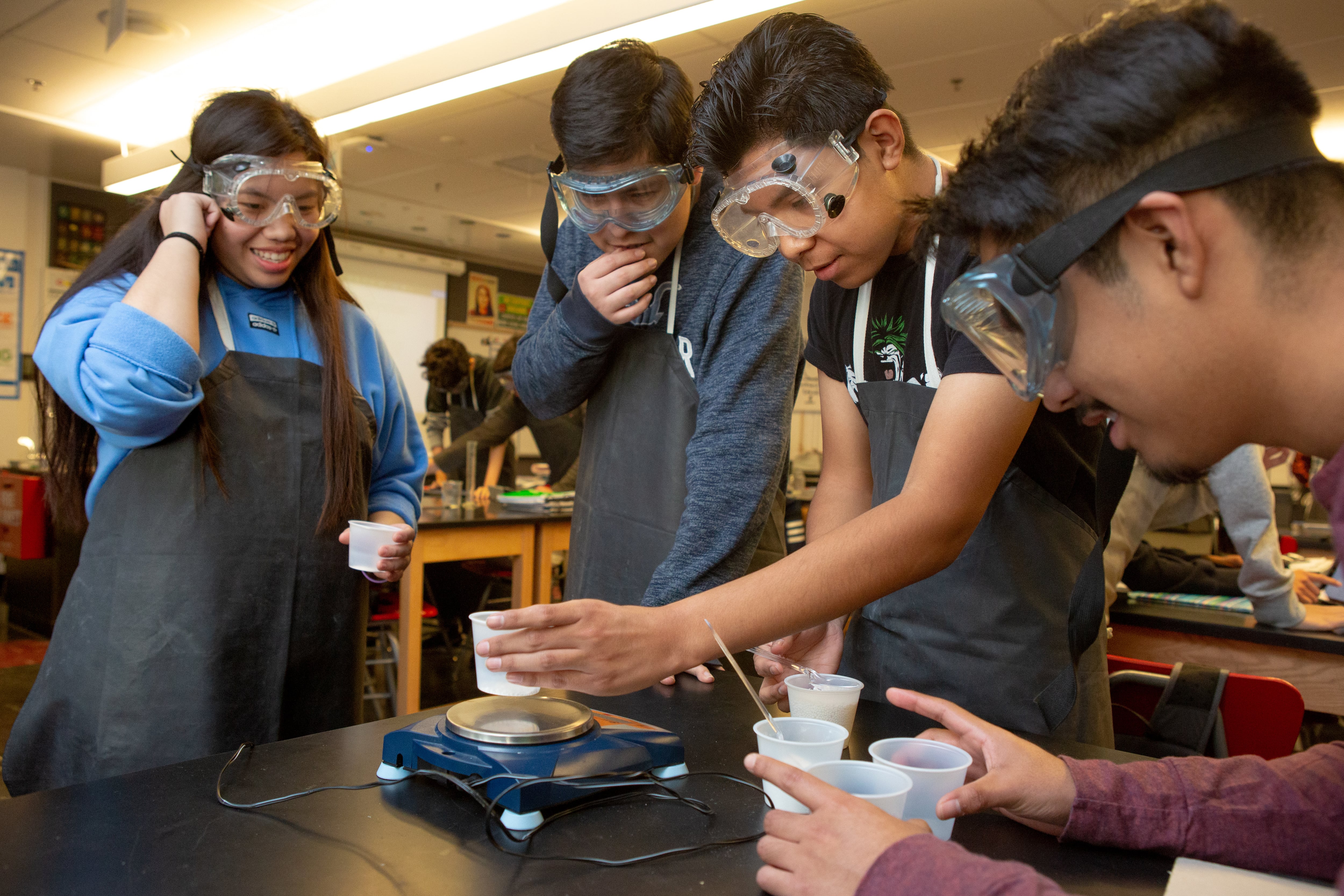A prominent conservative legal foundation is backing a new lawsuit challenging a New York state program that seeks to increase the enrollment of “historically underrepresented” students in college science and technology programs on the grounds that it excludes some white and Asian American students, according to legal filings.
The Pacific Legal Foundation is taking aim at the state’s 39-year-old Science and Technology Entry Program (STEP), which offers eligible students in seventh through 12th grade extra summer courses at local colleges and admissions help.
The lawsuit claims the program violates the Constitution’s equal protection clause by making Black, Hispanic, and Native American students automatically eligible, regardless of their family income, according to the federal suit filed Wednesday in New York’s Northern District. White and Asian American students are only eligible if their families fall below the income threshold.
“All students of all races should have equal rights based on their merit to participate in programs like New York State’s STEP,” said Wai Wah Chin, the president of the Chinese American Citizens Alliance of Greater New York and a plaintiff in the case, in a statement.
Plaintiffs and lawyers in the new case say their argument fits squarely with the U.S. Supreme Court’s decision last year to strike down race-based admissions at the college level.
The court “reaffirmed that racial discrimination in admissions is unacceptable, and ‘eliminating racial discrimination means eliminating all of it,’” added Chin, who is also slated to speak Thursday at a New York City event for Moms for Liberty, a parent group that’s sought to restrict access to gender-affirming care for transgender youth and block LGBTQ-focused books and curriculum.
The program in the crosshairs of the new lawsuit is a nearly four-decades-old initiative codified in state law to offer extra support to “students who are either economically disadvantaged or minorities historically underrepresented” in the STEM fields. The law leaves it up to the Board of Regents to define which students fit in those categories.
Fifty-six colleges and universities across the state got state money during the 2021-22 school year to offer extra summer courses, counseling, and research and internship experiences to more than 12,000 qualifying middle and high school students. More than 80% of the program’s graduates said they planned to attend college, according to the state Education Department.
The plaintiffs argue that the racial criteria unfairly discriminates against white and Asian American applicants who are above the income threshold.
“The Hispanic child of a multi-millionaire is eligible to apply to STEP, while an Asian American child whose family earns just above the state’s low income threshold is not, solely because of her race or ethnicity,” the suit states.
Yiatin Chu, a parent activist and plaintiff in the suit, said her seventh-grade daughter wants to participate in the NYU STEP program this summer, but is ineligible because she doesn’t meet the race or income criteria, according to the suit.
The state Education Department didn’t immediately respond to a request for comment about the lawsuit or how the eligibility criteria was determined.
The state’s definition of “underrepresented” groups in STEM majors and careers appears to align with both state and national data. As of 2015, both Asian American and white workers in New York were overrepresented in STEM jobs relative to their share of the population, while Black, Hispanic, and Native American residents were underrepresented. That pattern also holds true nationally, according to a 2021 report from the National Science Foundation.
The plaintiffs are asking a federal judge to block the state from using any “racial classifications or criteria” as a part of the STEP program.
The suit isn’t the Pacific Legal Foundation’s first attempt to block New York’s efforts to diversify selective institutions.
The group previously filed a lawsuit against the Discovery program that offers admission at the city’s specialized high schools to disadvantaged students who scored just below the cutoff on the admissions test and complete a summer course. A federal judge ruled against the plaintiffs in the Discovery suit in 2022.
Correction: A previous version of this story misstated the name of the Chinese American Citizens Alliance of Greater New York.
Michael Elsen-Rooney is a reporter for Chalkbeat New York, covering NYC public schools. Contact Michael at melsen-rooney@chalkbeat.org.





